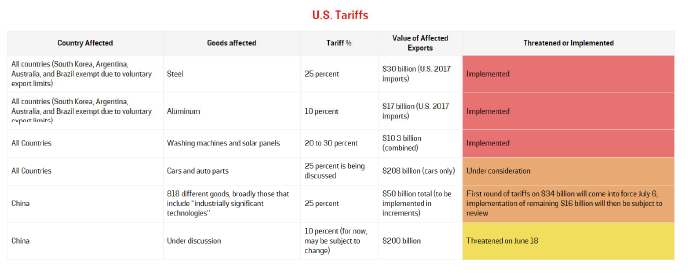Statement yesterday, as reported by Washington Examiner:
“[That country] really needs to make up its mind” … “Do they want to be in the community of nations, do they want to be part of the WTO and just behave like everybody else, or don’t they?”
…“And if they don’t, then we, the community of nations, are going to have to think about what are we going to do about that?”… “Are we going to let them stay in the WTO?”

